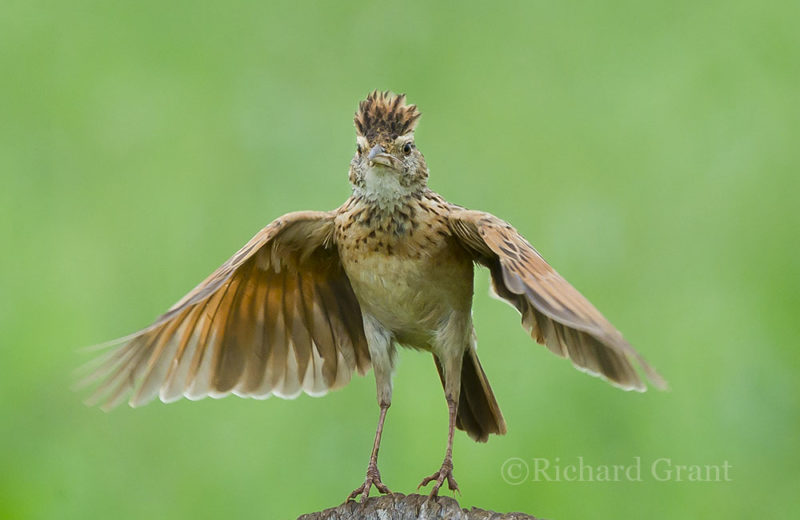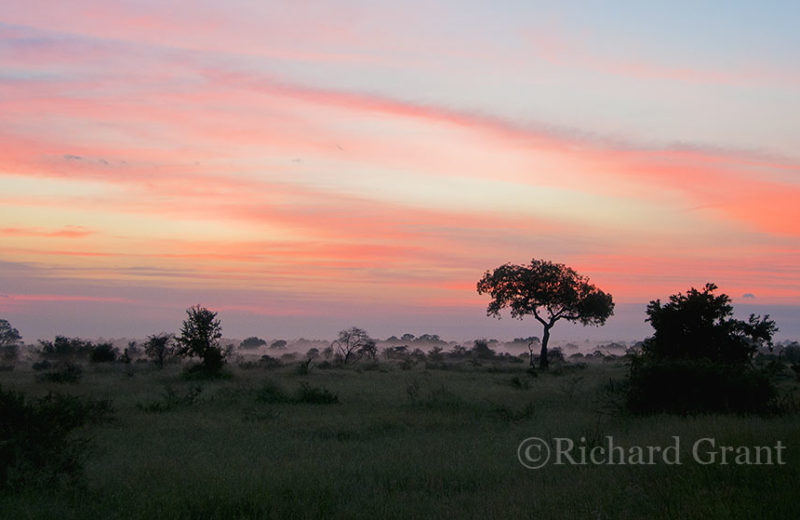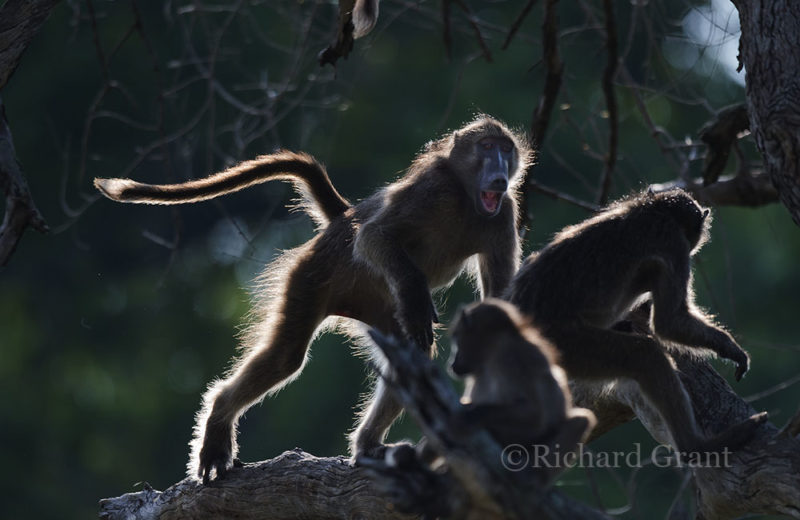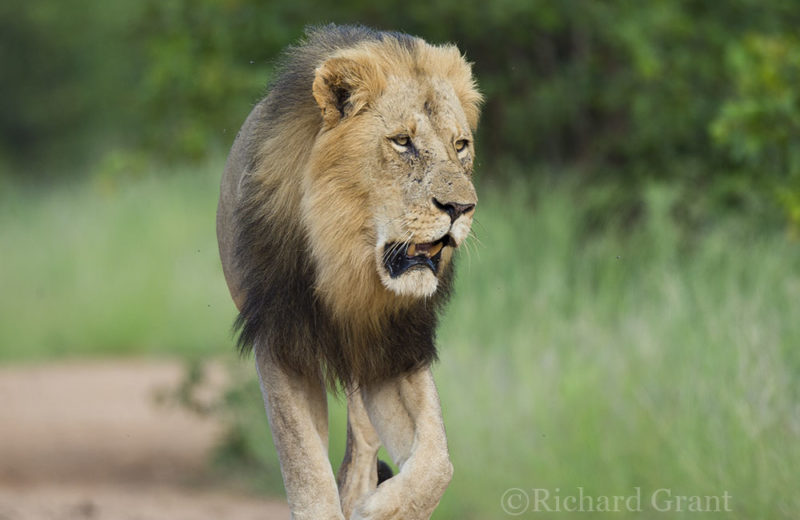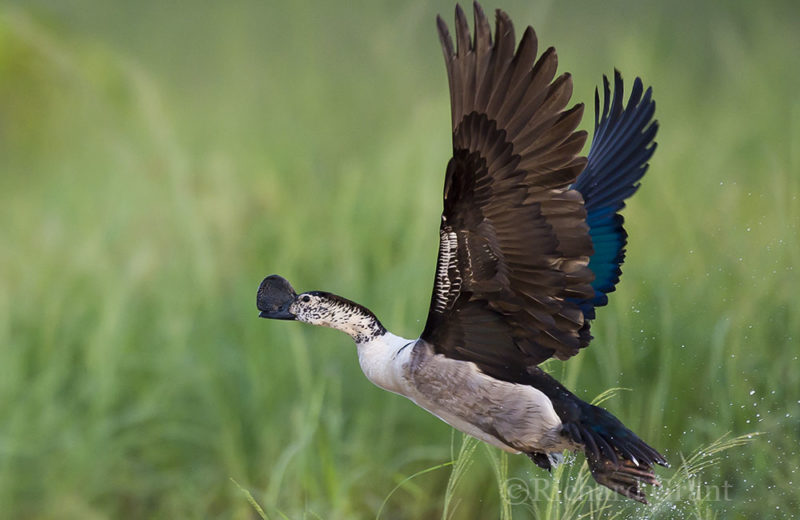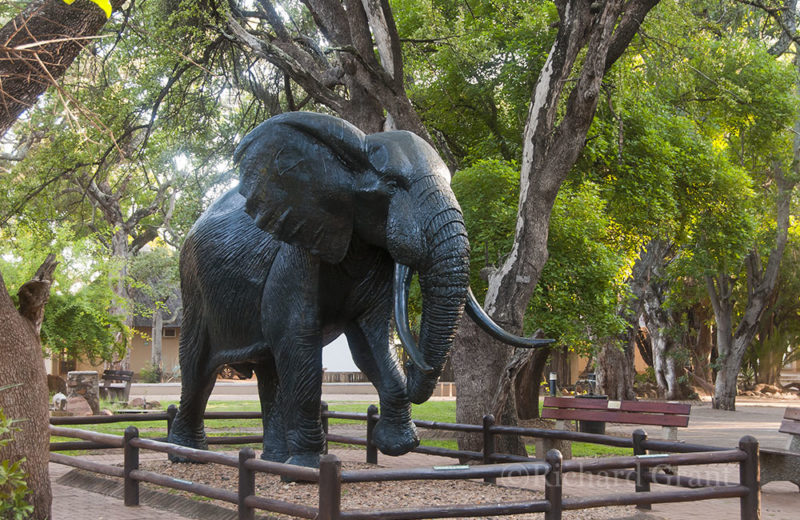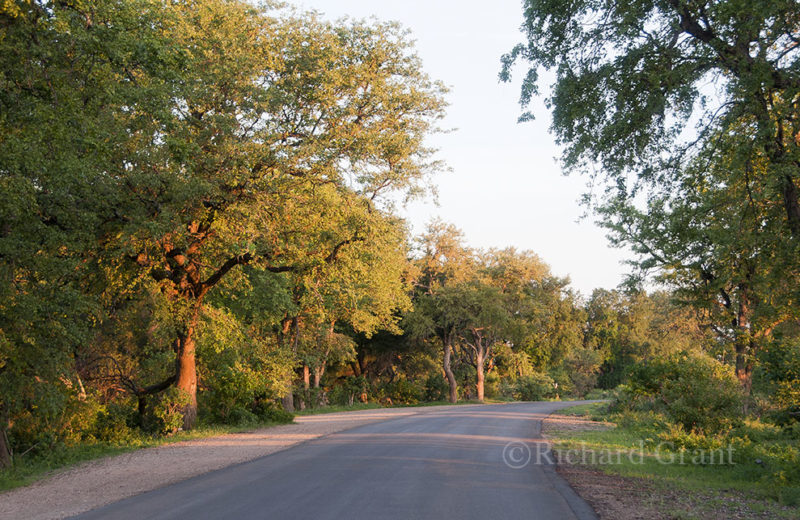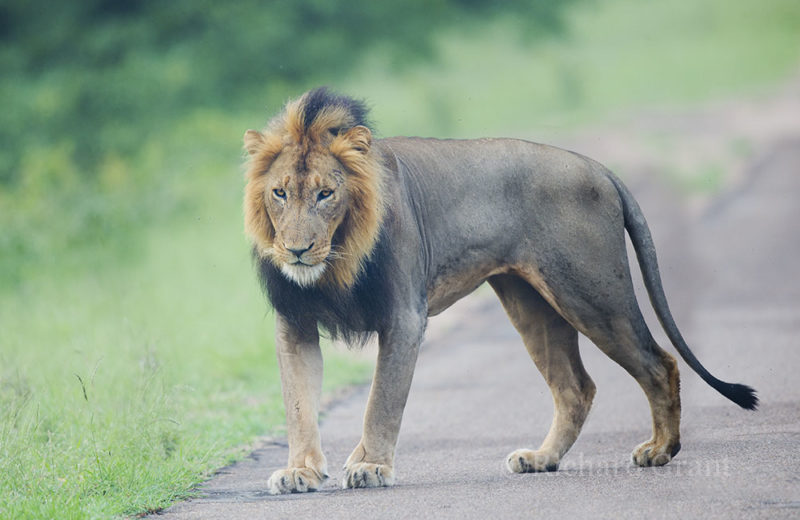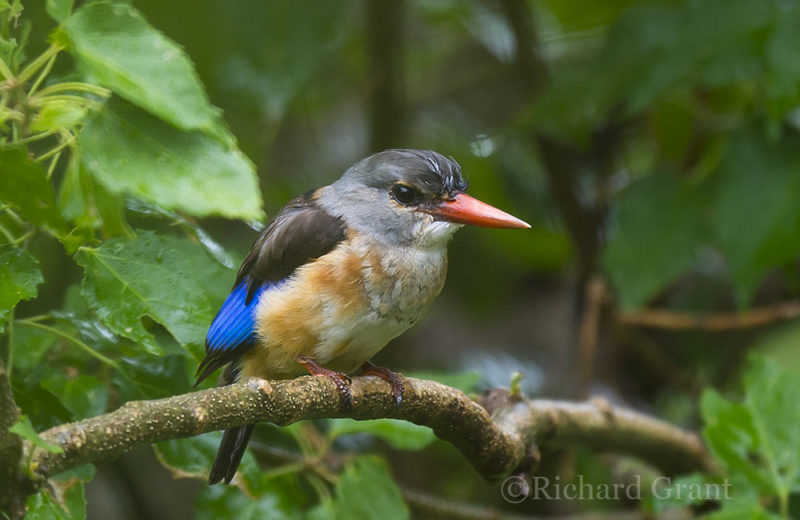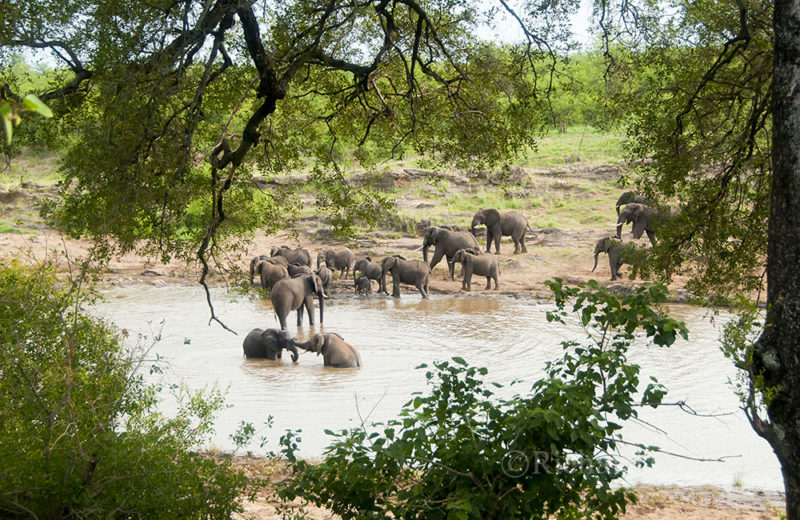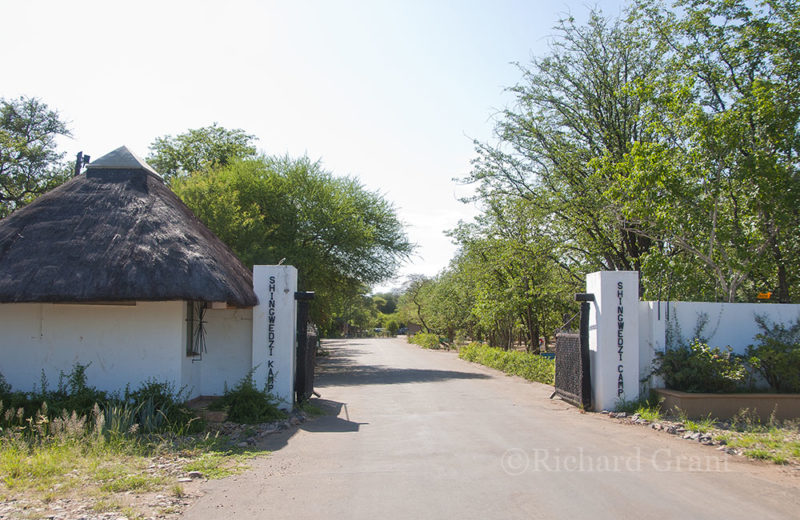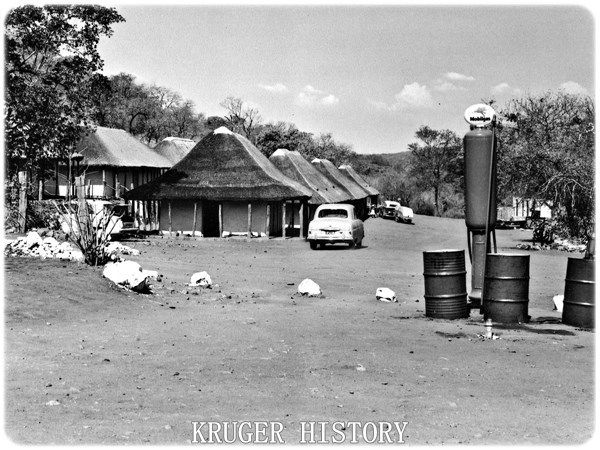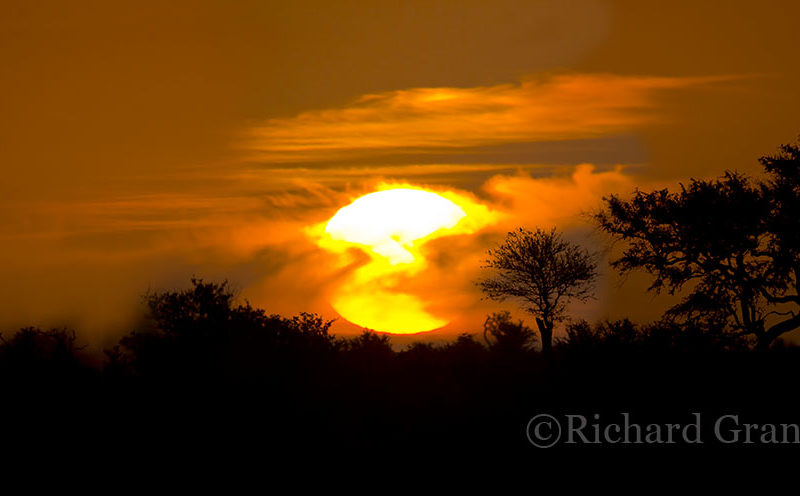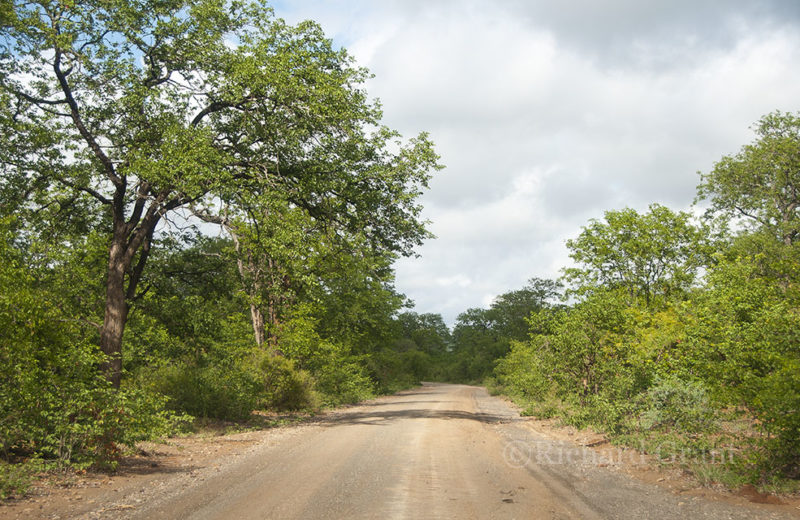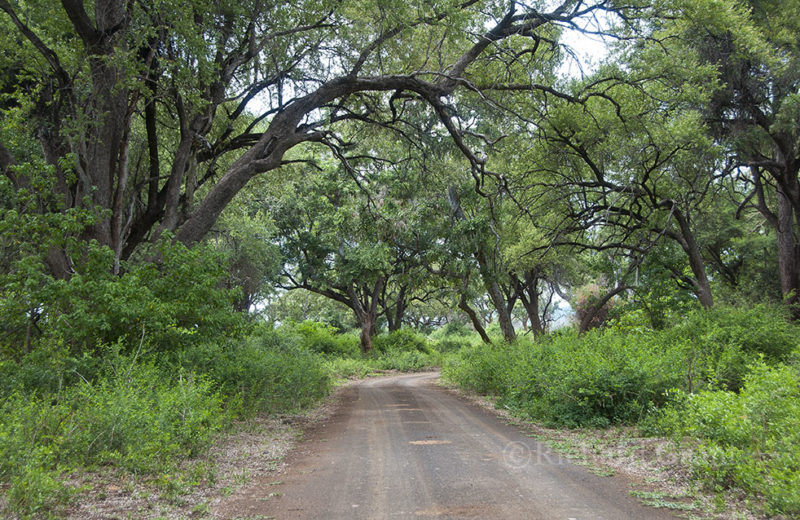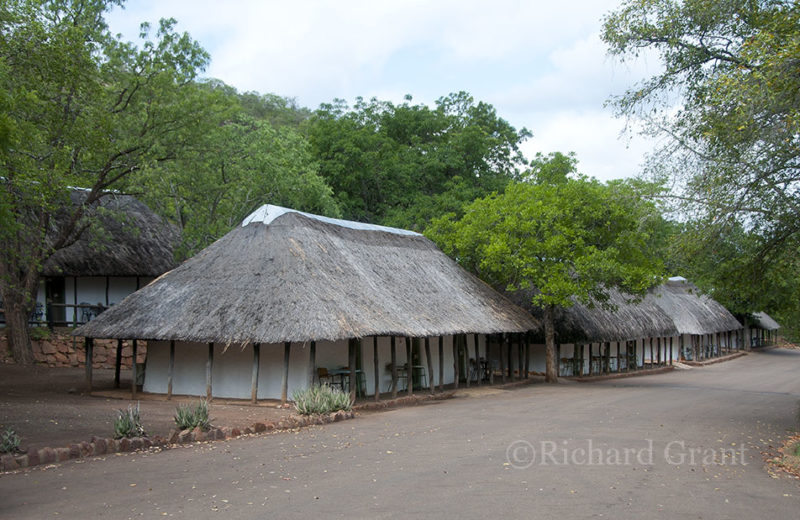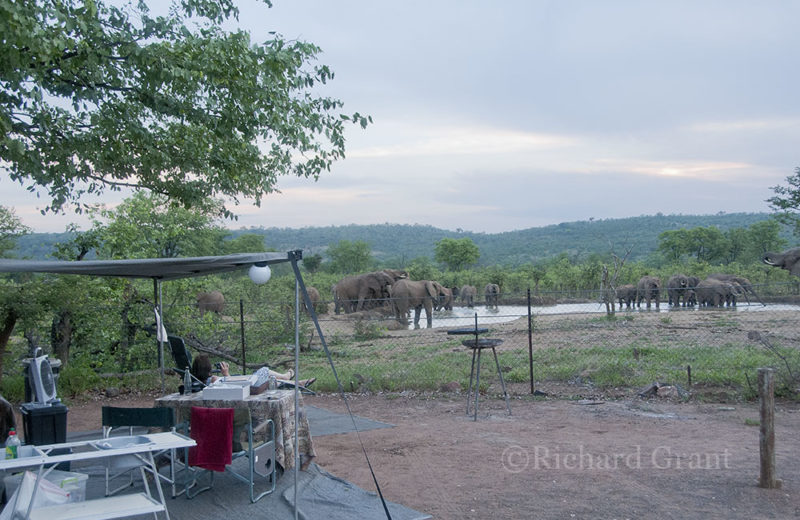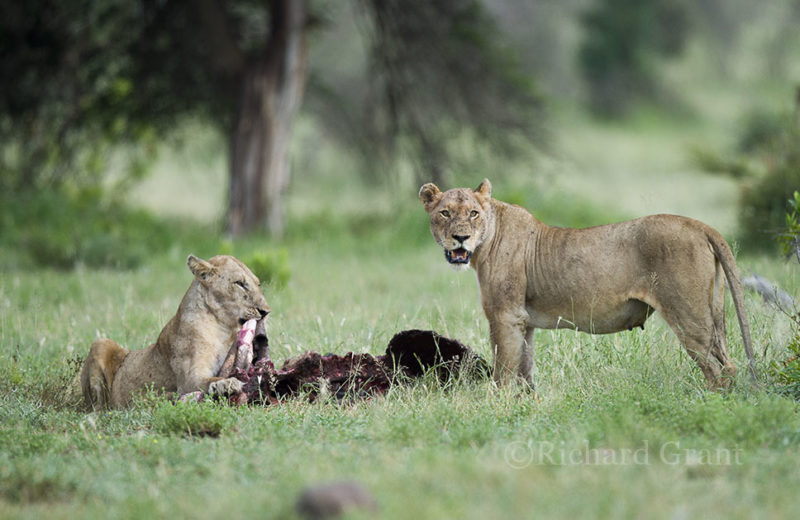Thursday, 21st February
We are keen to see the Balule Campsite on the banks of the Olifants River so leaving Letaba at 5.30am, we take the river road (S46) south. We have not seen many sunrises of late because of the clouds but today the sun comes up at 5.50am whilst we are at the Engelhard Dam.
Charles Engelhard, if I remember correctly, was an American mining magnate who had interests in SA including race horses. He loved Kruger and after his death his family donated a large dam to be built across the Letaba River. To me it is a pity that this great gesture had in it a touch of futility. The nature of these large Kruger rivers is to frequently flood, washing down so much detritus that any dam is quickly filled with sand rather than water. Also placing a barrier across these perennial rivers must affect the natural migration of fish and other aquatic life. Adding to this is the fact that the Engelhard Dam is not a very attractive area with very limited viewing for tourists.
We loiter along the road frequently seeing cuckoos which are so shy that they are off before we reach them. Again we see an African Golden Oriole which darts off in a streak of brilliant colour. I have never got close enough to this exquisite bird to even inspect it let alone photograph it so I suspect it will take enormous luck for me to succeed.
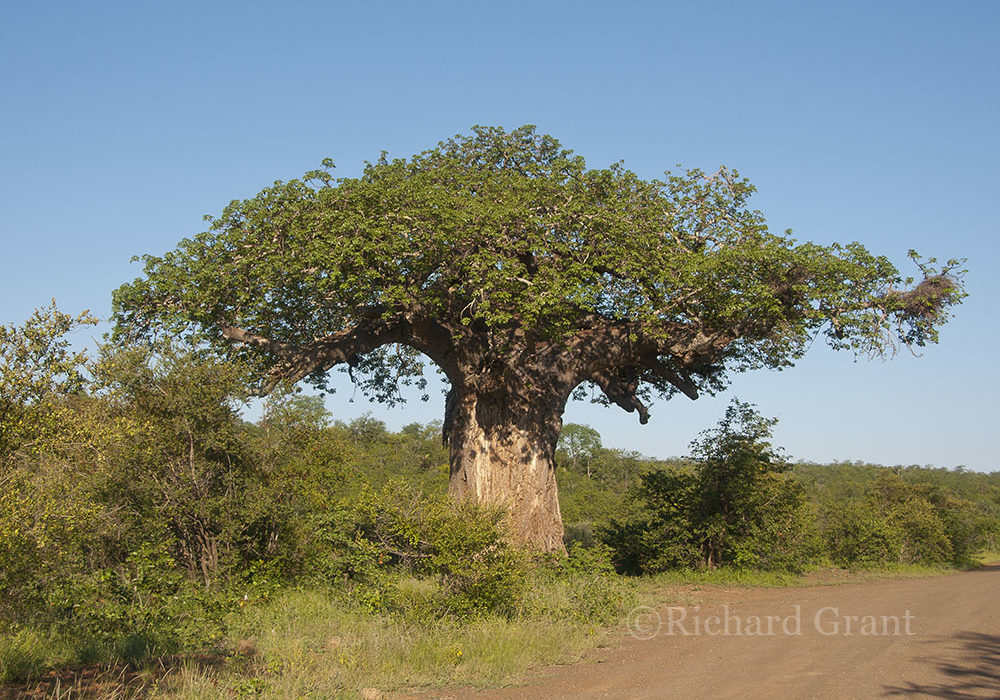
The mopane, that I do find a bit claustrophobic, finally peters out as we approach Olifants Restcamp and we do see some waterbuck, impala and zebra but very little else.
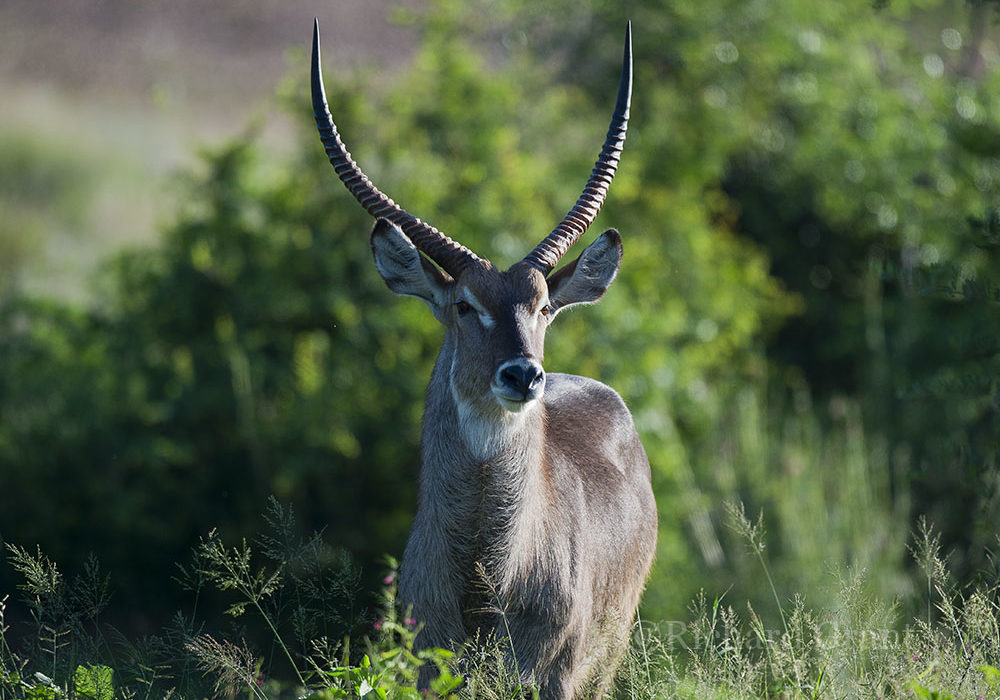
Then down into the Olifants River valley and along its northern bank to the low level bridge which one crosses to get to Balule on the south bank. The Olifants River in days gone by must have been magnificent but today the riverbed is washed with mud and debris and the river flows heavily laden with red sediment. There are no attractive reeds like the Sabie and the scene is quite stark. I fear that the Olifants River has sorely felt the over exploitation of the land in its catchment area.
Balule Camp is small, accommodating about twenty campsites and six huts. There are communal freezes and ablutions but no electricity with lighting done with paraffin lamps and cooking by gas. I suppose this does give a more natural feel to life but I am afraid that we are softies who need our comforts of air/cons, stoves, cameras and IT so Balule would just not do for us. Furthermore, I feel there are far more attractive areas of the Park.
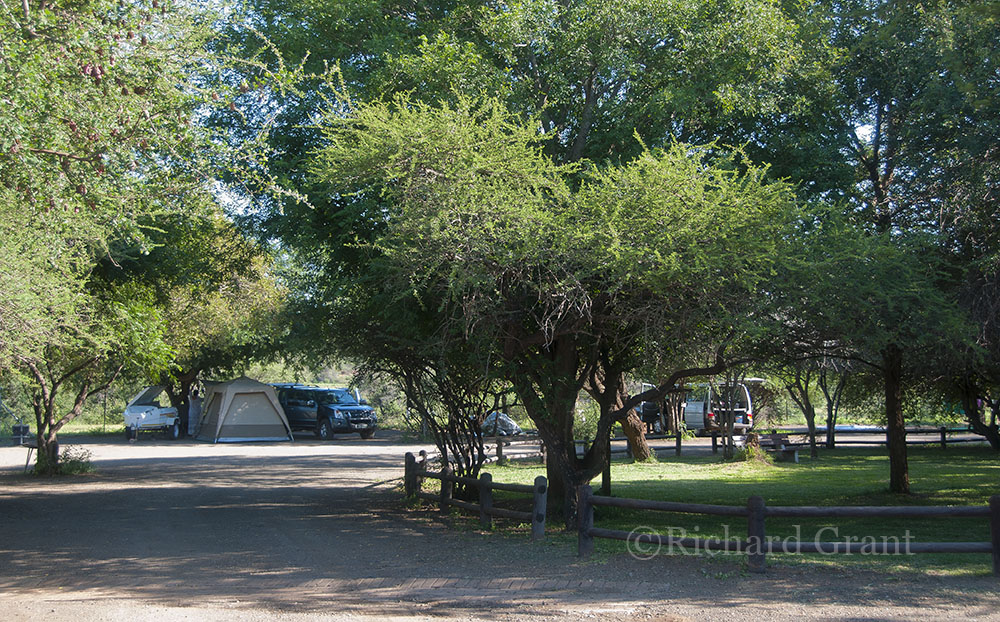
Back to Letaba along the main tarred road and we are back in camp at 9.30am after a rather quiet morning.
This afternoon I go out westward along the Phalaborwa road intending to take some little loop roads along the way. However, many of these are still closed off despite the rain having long ago left us. I see absolutely nothing and my thoughts start straying towards Satara which attractively beckons some 80Km’s to the south. Rain is forecast for Sunday and Monday so maybe we will move early to our overall favourite camp in the Park – Satara.
Friday, 22nd February
Today is partly cloudy with the usual cool southly drift. We are going to head west along the S131 gravel road which I have never been on before.
Just as I am beginning to think dark thoughts about mopane, we come across a Red-crested Korhaan at the side of the road. Korhaans are always delightfully entertaining and before long he launches into his characteristic call.
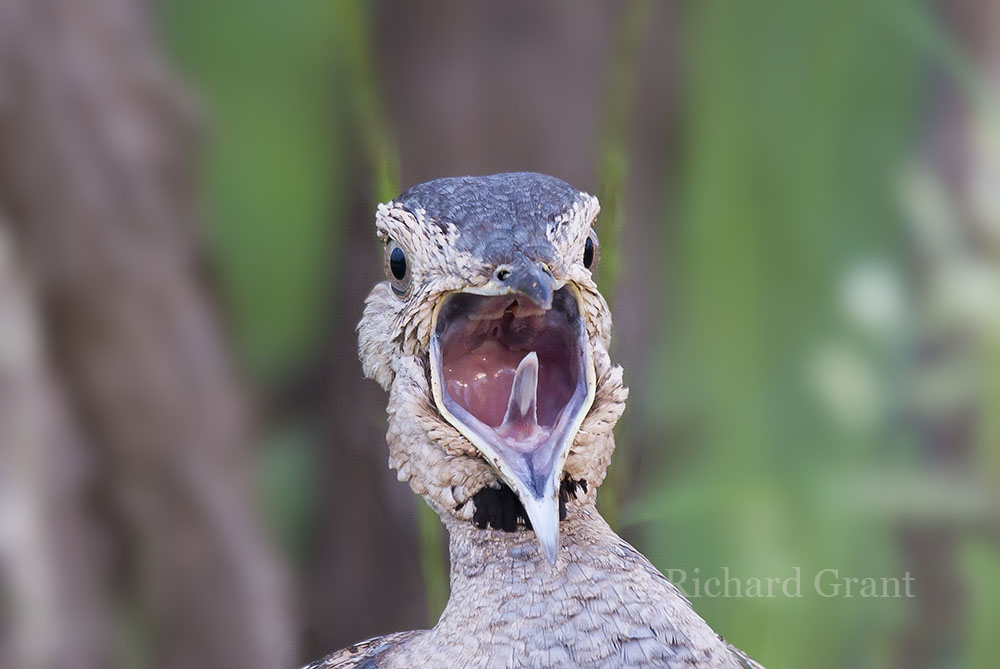
However this is something that can only be appreciated on a video clip so turn up your sound and listen to Renette’s handiwork.
Not far beyond this, something crashes into the grass right next to me with a large bird alighting in the mopane tree above it about 3m above the ground. Reversing, we find a Dark-chanting Goshawk peering into the grass.
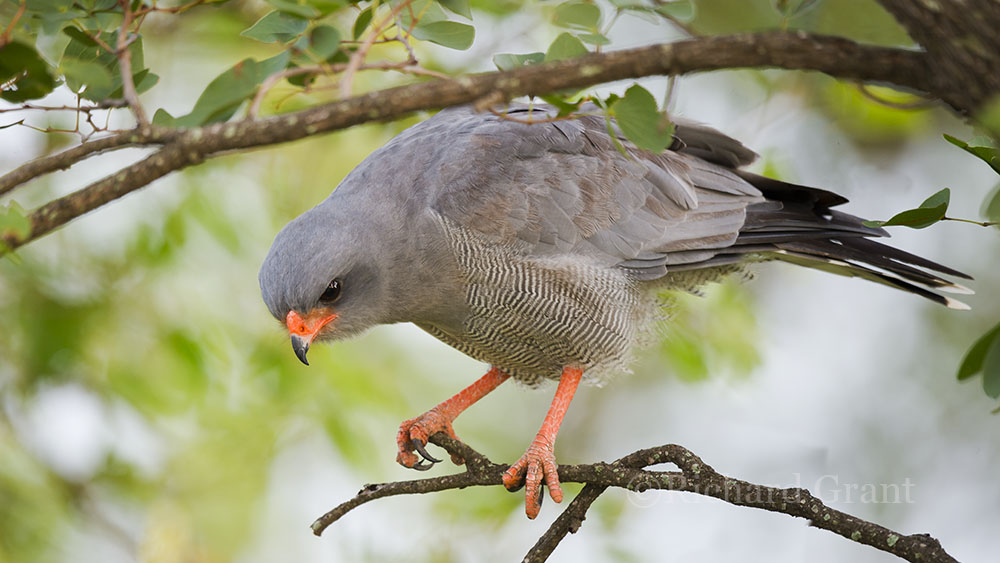
After a while it dives down and grasping a yellowish feathered corpse it flies up into a higher tree and enjoys his meal.
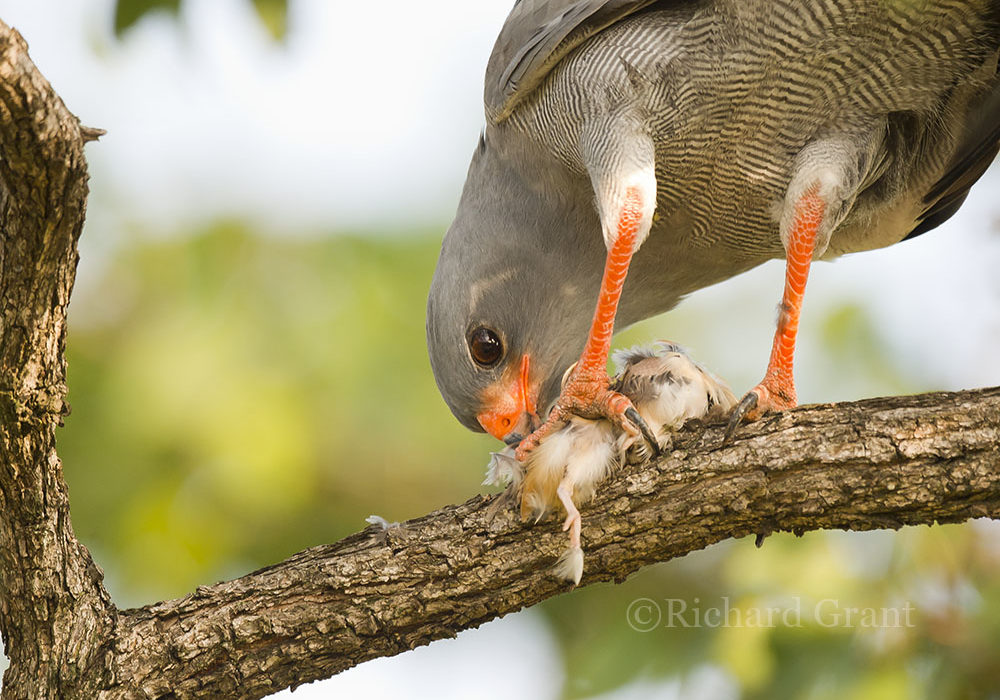
I cannot quite work out whether he had already immobilised his prey because what ever it was remained ‘dead’ still in the grass.
We continue along the road and suddenly, amongst the mopanes, we very unexpectedly come to the most beautiful large pan of water next to the road. To make things better a herd of buffalo are present.
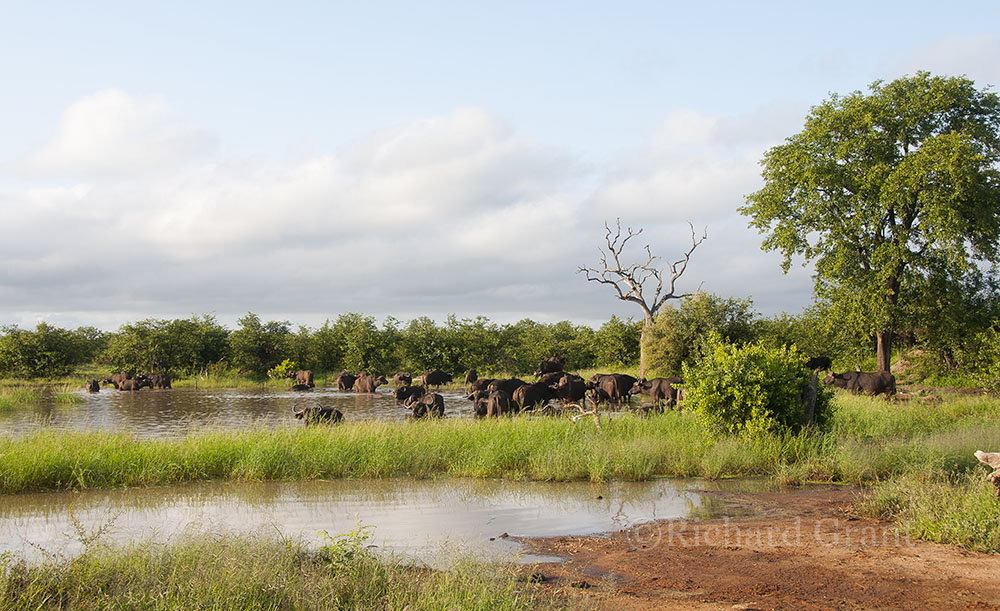
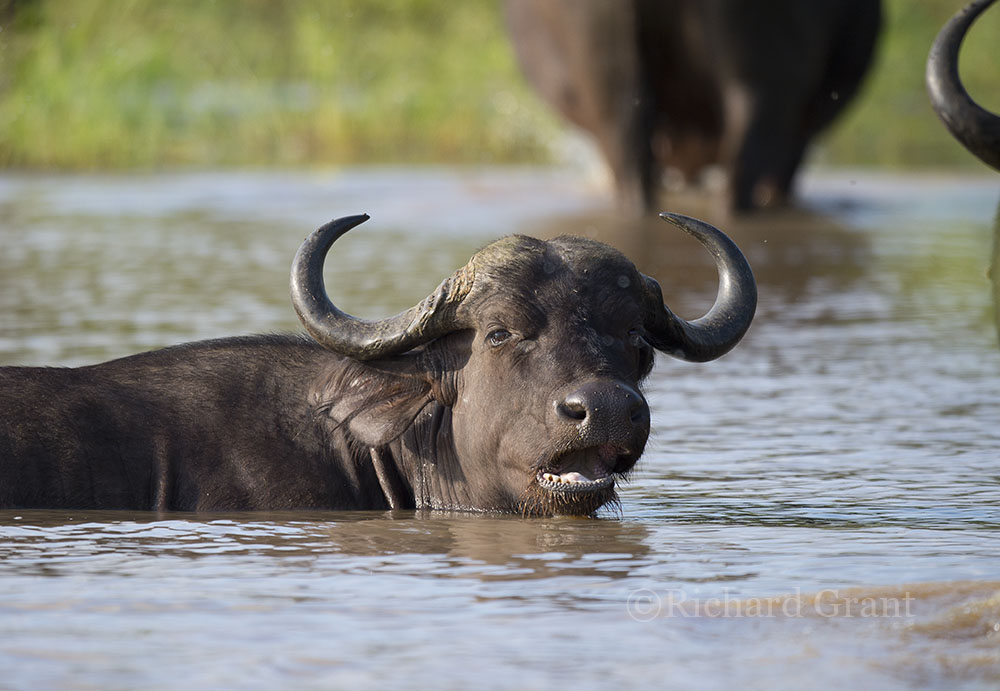
We settle down to enjoy our breakfast and before long a lone hippo rises above the water surface and yawns. Around every sizeable pool are white frogs egg nests but above the ones close to us is a Dwarf Bittern.
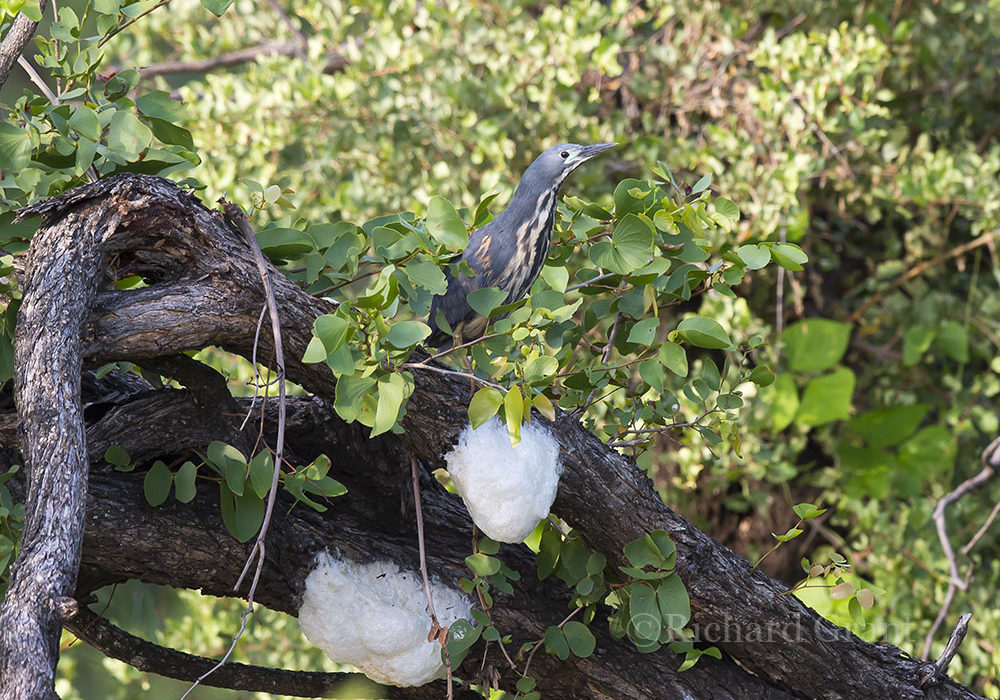
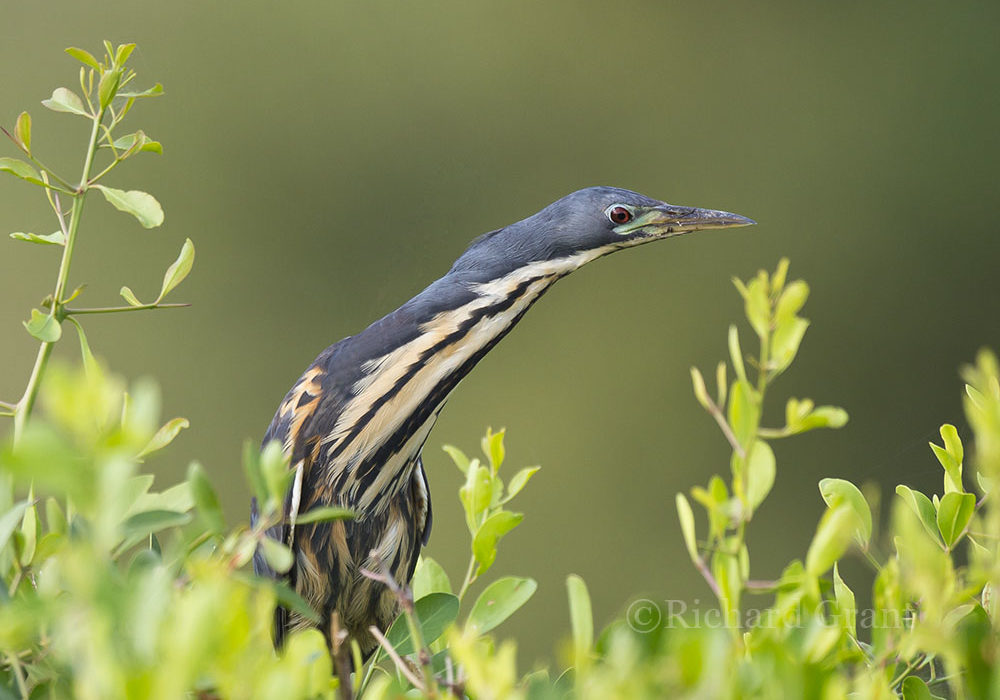
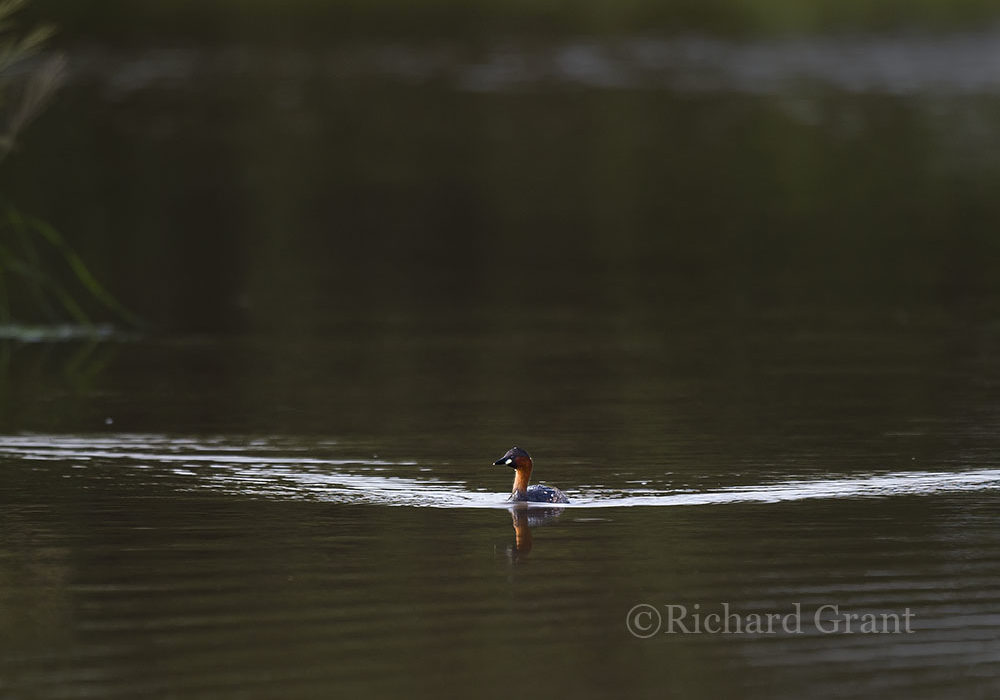
This place is magical and I feel a little guilty about my disparaging remarks about Letaba’s surrounds. All thoughts of leaving for Satara tomorrow are shelved and we are going to come straight to this idyllic spot at sunrise. I wonder what other hidden treasures Letaba has up its sleeve?

